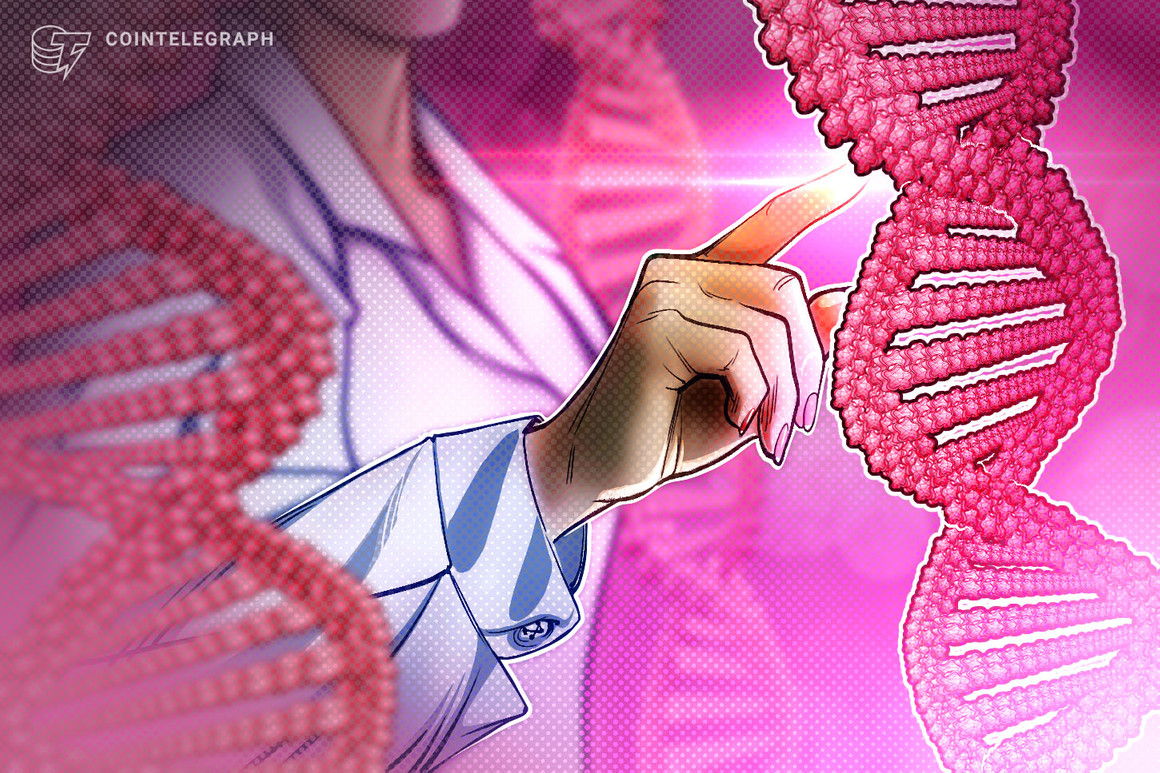It’s predicted that nonfungible tokens (NFTs) will have a vast impact on society. Given this, it shouldn’t come as a surprise that the trillion-dollar

It’s predicted that nonfungible tokens (NFTs) will have a vast impact on society. Given this, it shouldn’t come as a surprise that the trillion-dollar healthcare sector has begun to explore NFTs tokens to advance medicine.
It’s also important to point out that blockchain technology can play an increasingly important role within the healthcare sector. This was recently highlighted in a report from the European Union Blockchain Observatory, which specifically documents how blockchain applications can solve challenges facing the healthcare industry.
For example, the paper notes that patient engagement and transparency of how data is stored, along with the effective distribution of knowledge and data remains problematic for the healthcare sector. Yet, as the blockchain space continues to advance, tokenization in the form of nonfungible tokens may serve as a solution to many of the challenges facing today’s healthcare industry.
GeneNFTs aim to revolutionize precision medicine
For those unfamiliar with the term, precision medicine refers to “an emerging approach for disease treatment and prevention that takes into account individual variability in genes, environment, and lifestyle for each person,” according to the Precision Medicine Initiative.
Specifically speaking, Cao believes that tokenizing genetic profiles can help patients maintain data ownership and transparency into their insights while receiving many benefits that are not typically associated with traditional genomic testing. He explained:
For example, Genetica, a genomic company catering to the Asia Pacific region, recently partnered with Oasis Labs, a Web3 data management firm, to tokenize genomic profiles. Tuan Cao, Genetica’s CEO and co-founder, told Cointelegraph that the goal behind this partnership is to advance precision medicine by giving patients data ownership and rights through GeneNFTs.
“This may be one of the most important NFT applications in the world. Our genetic profile is unique and it should be represented by an NFT. GeneNFTs are the tokenized ownership of one’s genetic data. This enables each of us to truly take control and benefit from our data contribution.”
According to Cao, traditional genetic testing companies like 23andMe, for example, rely on intermediaries to collect patient data for research. As such, users must trust centralized entities to safely store sensitive health information. Moreover, users do not receive any incentives for opting to share their data with third parties. Yet, tokenizing genomic data in the form of an NFT has the potential to transform this model entirely.
For instance, Cao explained that Genetica’s partnership with Oasis Labs enables users to perform a traditional genetic test and receive a GeneNFT afterward that represents true ownership of their genetic profile. More importantly, Cao noted that GeneNFT holders become the gatekeepers of their data, meaning they must grant access to third-party entities that wish to use that information. He elaborated:
“A user holding a GeneNFT also holds the private key for that data. If a pharmaceutical company for instance wants to run a genetic study, they must send a proposal for access. A user can then sign the proposal to approve the access.”
Cao further explained that there are both financial and medical benefits associated with GeneNFTs. “Financial benefits involve revenue sharing, so users will get paid when third parties request to access their data. We are able to issue these payments automatically due to blockchain technology and smart contracts,” said Cao.
Cao believes that the medical benefits achieved from GeneNFTs outweigh the financial incentives. “When users participate in a genetic study, a smart contract is leveraged to ensure patients will receive treatment first if they contribute to a clinical trial. Precision medicine profiles for treatments of certain diseases based on genetic variants, which is how this model is ultimately advancing precision medicine,” he said.
Dawn Song, founder of Oasis Labs, told Cointelegraph that GeneNFTs can be viewed as data-backed nonfungible tokens. “Typically people think of NFTs as JPEG images, but data-backed NFTs combine blockchain with privacy computing to utilize certain pieces of data while still complying with data usage policies like the EU’s data protection regulations, or GDPR,” she said. Technically speaking, Song explained that Genetica will use Oasis Network’s Parcel, a privacy-preserving data governance application programming interface (API), to tokenize genomic profiles. She elaborated:
“Given that genomes are the quintessential identity of individuals, it is critical that any platform that stores and processes genomic data provides confidentiality to the data at rest, in motion and, more importantly, in use. Parcel provides these capabilities via the use of encryption of data at rest and in motion and trusted execution environments to maintain data…
cointelegraph.com
